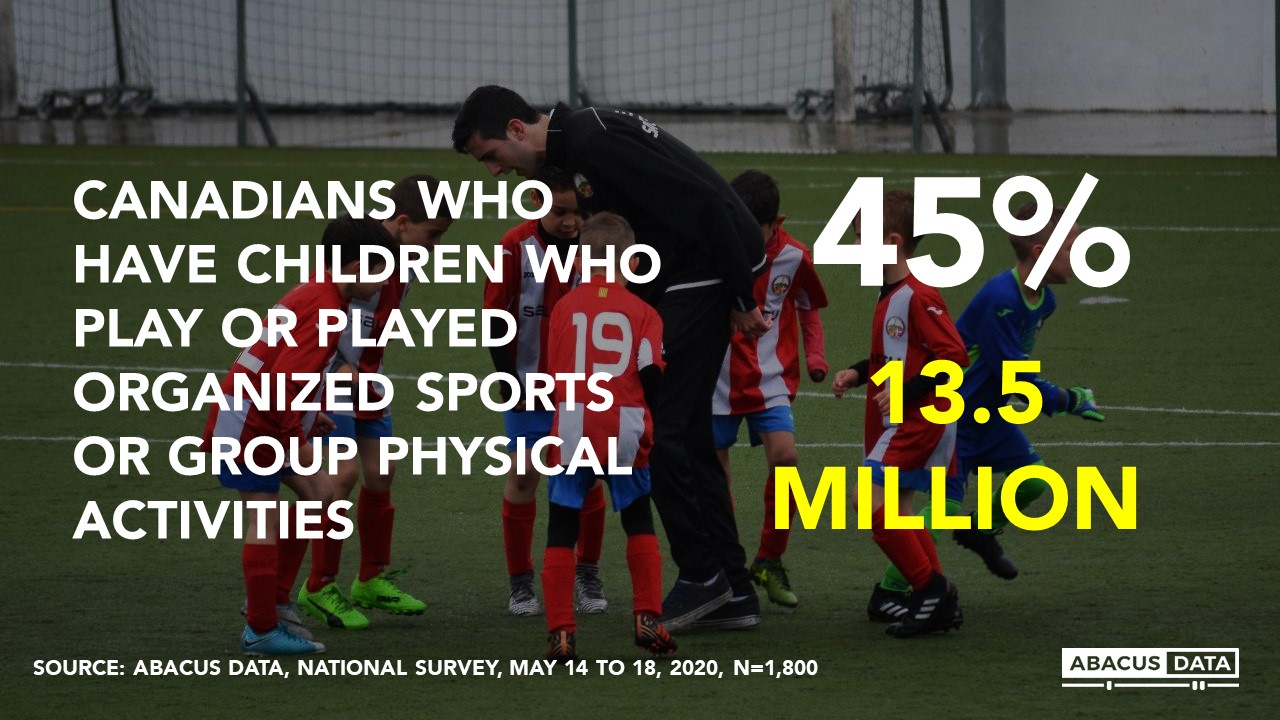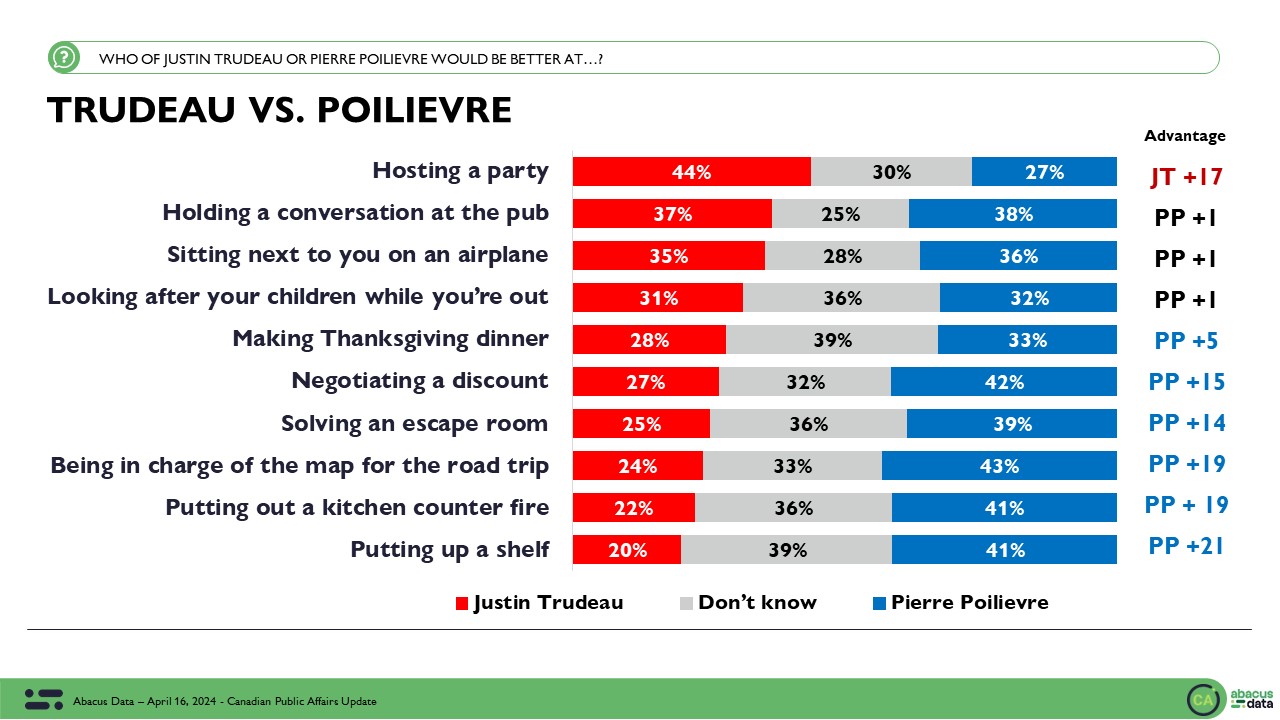Canadians ready to get back to organized sports and group physical activities post-pandemic.
May 21, 2020

Abacus Data Bulletins are short analyses of public opinion data we collect. For more information or media interviews, contact David Coletto.
Our team has been tracking Canadian perceptions and attitudes around the pandemic for more than two months. As provinces start executing plans to re-open the economy, when group physical activity and organized sports will return remains somewhat unclear.
In our most recent survey, we asked Canadians their thoughts on the return of organized sports.
Here’s what we found:
1 in 4 Canadian adults regularly took part in an organized sport or group physical activity before the pandemic. Younger Canadians were much more likely to take part with 43% of those aged 18 to 29 and 32% of those aged 30-44 saying they played an organized sport or took part in a group physical activity before the pandemic.

Almost 1 in 2 Canadians have children who played organized sports or group physical activities. Soccer, swimming, hockey, basketball, baseball or softball, football, and tennis were the most reported sports played by children in households.

There is some hesitation to return to organized sports, but most will feel comfortable doing so within a few months. Among those who regularly played organized sports or took part in group physical activities, 62% say they will be comfortable playing again within a few months, 42% within a few weeks.

Almost all Canadians say organized sports and group physical activity will be important in helping society rebuild and recover from the pandemic. 90% think organized sport or group physical activities will be important for the recovery post-pandemic, 38% think they will be very important. Those who regularly played organized sports before the pandemic are much more likely to think it is very important – 54%.

2 in 3 Canadians think it is important to find ways for Canadians to play organized sports when distancing restrictions are lifted because of the impact they have on mental and physical health. In contrast, 37% think the risk is too great until there is a vaccine.

THE UPSHOT
Organized sports and group physical activity plays an important part in the lives of about 8.1 million Canadian adults, not to mention millions more children. As physical distancing restrictions are lifted, many feel that sport and physical activity will be an important part of healing. While some will be reluctant to take part right away, those who involved in organized sports or group physical activities will be looking for ways to get back to what they love as soon as possible.
Group physical activities help build social capital, keep minds and bodies healthy, and take minds off of the anxiety the pandemic has caused. Canadians think that getting organized sports and group physical activities running again soon will help society recovery and rebuild after the pandemic.
ABOUT ABACUS DATA
We are the only research and strategy firm that helps organizations respond to the disruptive risks and opportunities in a world where demographics and technology are changing more quickly than ever.
Find out more about what we are doing to help clients respond to the COVID-19 pandemic.
We are an innovative, fast-growing public opinion and marketing research consultancy. We use the latest technology, sound science, and deep experience to generate top-flight research-based advice to our clients. We offer global research capacity with a strong focus on customer service, attention to detail and exceptional value.
We were one of the most accurate pollsters conducting research during the 2019 Canadian Election.

Contact us with any questions.
Find out more about how we can help your organization by downloading our corporate profile and service offering.
METHODOLOGY
Our survey was conducted online with 1,800 Canadian adults from May 14 to 18, 2020. A random sample of panellists was invited to complete the survey from a set of partner panels based on the Lucid exchange platform. These partners are double opt-in survey panels, blended to manage out potential skews in the data from a single source.
The margin of error for a comparable probability-based random sample of the same size is +/- 2.4%, 19 times out of 20. The data were weighted according to census data to ensure that the sample matched Canada’s population according to age, gender, educational attainment, and region. Totals may not add up to 100 due to rounding.



